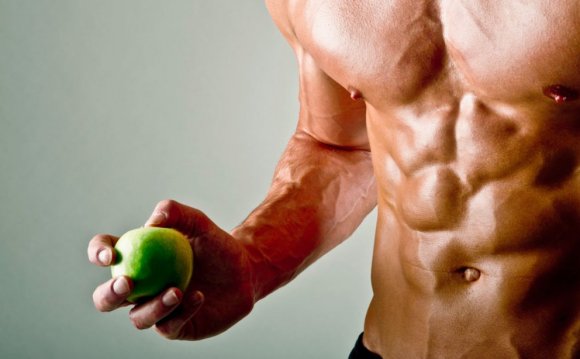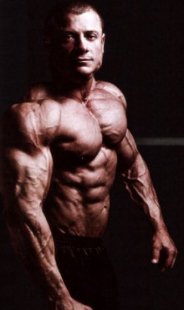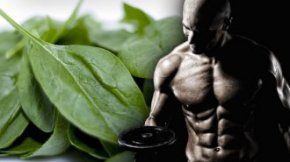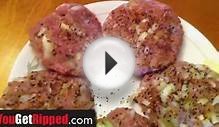
 Getting big requires a lot of heavy lifting, both in the gym and in the kitchen.
Getting big requires a lot of heavy lifting, both in the gym and in the kitchen.
The gym lifting is relatively simple, just not easy. Plenty of effective bulking programs have been published on T NATION. I suggest picking one written by a coach you trust and hitting it with intense desire and bulldog determination. Don't try to "tweak" it or outcoach the coach and you'll be successful.
The lifting you do in the kitchen is another matter. Adding weight, meaning scale weight, is easy. Simply eat anything that isn't nailed down for a few months and your weight-gaining woes will be a memory, along with your abs.
Sadly, for the truly genetically hapless, this kind of uninhibited "see-food" bulking can result in a three to four pound fat gain for every pound of new muscle. That isn't an acceptable tradeoff for any bodybuilder, especially one who doesn't want to own a separate set of fat pants.
What I'm about to present is different. This isn't an old school sloppy bulking program that will quickly obliterate your abs and leave you facing a lengthy dieting phase for just a few pounds of new muscle. This is refined and efficient; a lean gain diet program designed to add muscle without sacrificing the physique in the process. Call it 21st century bulking or whatever the hell you want. I call it the most effective way to gain muscle while staying in shape.
Program Design
 The program is divided into two different days – one plan for training days, the other for off days. By "training" I mean heavy weight training in the gym, not any type of cardio or conditioning. A cardio-only day is considered a non-training day in this plan.
The program is divided into two different days – one plan for training days, the other for off days. By "training" I mean heavy weight training in the gym, not any type of cardio or conditioning. A cardio-only day is considered a non-training day in this plan.
- The training days maximize growth through a higher carbohydrate intake, very little fat, and a good amount of lean protein. The training day schedule takes advantage of the powerful hormone insulin by timing carbohydrate intake for when nutrients will be preferentially forced into muscle cells and not body fat cells, namely first thing in the morning and post training.
- To speed nutrients to your muscles, consume a during/post training shake composed of fast absorbing carbs and protein. This shake should be sipped throughout your training and be finished by the time the workout is completed. The possible exception to this would be on heavy squatting and deadlifting days when consuming anything while training could cause discomfort or vomiting. In this case, drink the shake after finishing those main exercises or immediately post workout.
- Ideally, the post training meal should be eaten within the next 60 to 90 minutes to take advantage of the increased nutrient uptake window that immediately follows heavy training. Practically speaking, eat when you feel you've digested your shake and are ready to eat. While the focus of the training day schedule is to promote muscle hypertrophy, the goal of the non-training day program is to mitigate body fat accumulation. This is accomplished by significantly decreasing carbohydrate intake, reducing the total number of meals and calories, and by combining healthy fats with protein at optimal times.
- Reducing carbohydrate intake and timing them properly keeps insulin under control, effectively preventing additional body fat storage. Carbohydrate intake is lowered later in the day when insulin sensitivity is typically at its worst. This means that higher levels of insulin would need to be secreted for a similar blood sugar level earlier in the day.
Once liver and muscle glycogen needs are met, higher insulin levels lead to increased body fat storage. This is why the plan substantially reduces or eliminates carb intake at these times and replaces it with protein and healthy fats. This helps mitigate appreciable fat gain, even with a calorie surplus.
Cardio
While cardio is often unnecessary – and sometimes not even desirable – in a growth phase, it can be used with this program depending on goals and body type.
- For those that either have a genetic predisposition for fat gain or desire to remain as lean as possible, cardio is recommended.
- Cardio can also be beneficial to those that complain of poor appetite. I know pro bodybuilders that perform cardio in the off-season simply as a means to stimulate their appetite for the work that must be done at the training table.
There are two distinct times when body fat stores are most easily tapped for energy: first thing in the morning before eating and immediately post training.
INTERESTING VIDEO












